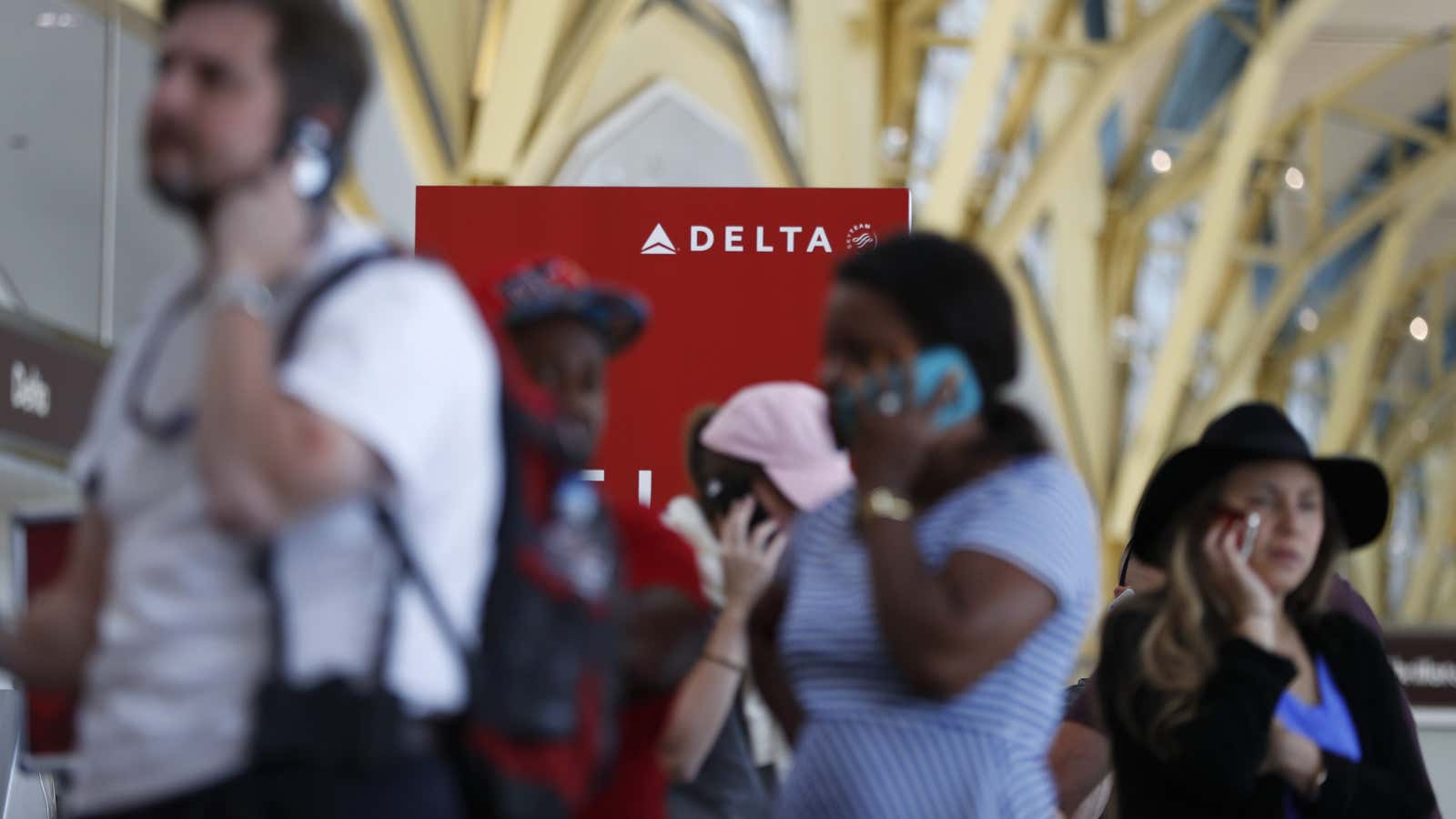The computer outage that hobbled Delta Air Lines’ operations around the world this week left thousands of passengers stranded. The $200 travel vouchers, Krispy Kreme doughnuts, free rescheduling or refunds that Delta has offered may seem paltry given that cancellations continued for a third day, with 311 flights canceled as of 2:30 p.m. ET. But many travelers have only a few options.
Southwest and United are among other major carriers that have also experienced crippling computer outages recently, so fed up travelers may face similar problems if they opt to boycott Delta. Every US airline is heavily reliant on computer systems to schedule flights, crews, reservations and check-ins.
Moreover, American have fewer airlines to choose from. A wave of airline consolidation in the US has created mega-carriers that control the bulk of air domestic air travel. Delta, the second-largest US airline by traffic, acquired Northwest in 2008. Other large US deals include United Airlines’ merger with Continental in 2010 and American Airlines’ 2013 combination with US Airways. Alaska Airlines in April announced it would acquire Virgin America.
The lack of choice is particularly pronounced for domestic travel. Between May 2015 and April 2016, Delta, American, United and Southwest together had 68% US marketshare, according to the Department of Transportation. Sixty-three percent of Americans’ personal air travel is within the US, according to Airlines for America, a trade group.
But competition is growing for international routes. JetBlue said last month that it could use new Airbus planes in the A320 family to fly to Europe. Air Berlin said this month it would add service from Germany to Orlando, San Francisco, New York, Los Angeles and Miami over the next year. Norwegian Air has added routes to the US, as have Gulf carriers.
That may not appear to be a threat for the US market, but it is a reminder to industry giants that new competitors are circling their international flyers.
